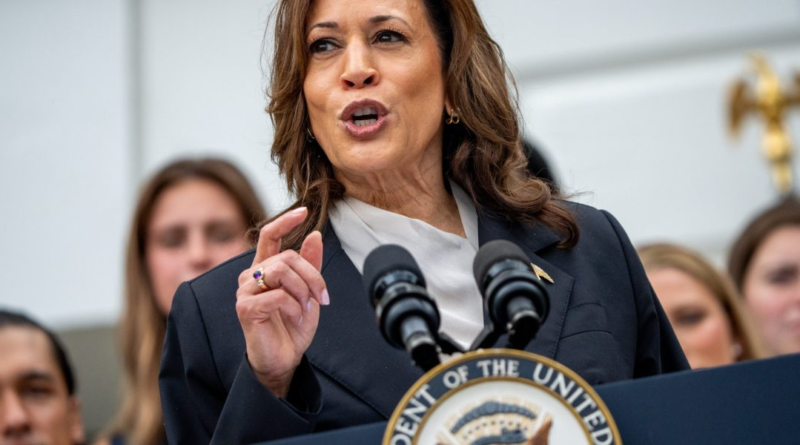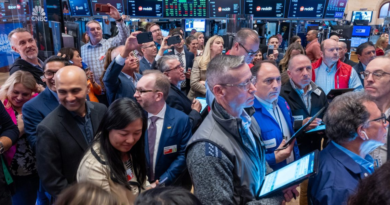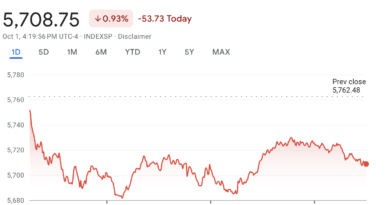Kamala Harris has a history of opposing trade deals that are bad for workers and the environment
Over her career in politics Harris has twice opposed major trade deals that she deemed good but not good enough.
As a Senator and Senate candidate, Harris either opposed or voted against international trade deals like the U.S.-Mexico-Canada Agreement and the Trans Pacific Partnership. Despite her votes, Harris doesn’t oppose international trade in principle, rather just certain specifics in these deals, which she deemed insufficient.
It’s “not a protectionist approach, she simply said trade deals ought to take into account worker protections and environmental concerns,” says Alan Wolff, a trade policy expert at the Peterson Institute for International Economics.
Wolff calls Harris’s approach to trade policy that of a “centrist Democrat” who supports international trade agreements but expects them to have strict, enforceable provisions for progressive priorities like workers’ rights and climate change protections. With Harris’ campaign still in its infancy, investors are trying to divine what her campaign, and possibly presidency, might look like for the market. Some believe her potential administration will simply be a continuation of President Joe Biden’s policies.
However, trade policy could offer some early indications about where nuances between a Harris and Biden White House may lie, according to Jason Pride, chief of investment strategy & research at investment firm Glenmede. “Harris has previously argued that some of the existing trade policies, like the TPP and USMCA did not strike the right balance for US interests,” Pride says.
As a Senator in 2020 she was one of only 10 Senators to oppose the newly agreed upon U.S.-Mexico-Canada Agreement, the successor to NAFTA the Trump administration had negotiated. Harris felt the deal offered little, if any, environmental protections over the course of its 16-year term.
“By not confronting climate change, the USMCA fails to meet the crises of the moment,” Harris wrote in an X post in January 2020. “We can do better, and that’s why today I voted NO on the USMCA in committee.”
At the time the move put Harris in the company of some of the Democratic Party’s most environmentalist caucus members. Joining Harris in criticizing the deal, which is a hallmark of U.S. trade policy, were the likes of Sen. Ed Markey (D-Mass.), one of the sponsors of the Green New Deal, and Sen. Sheldon Whitehouse (D-R.I.), who is known for giving a near-weekly address on climate change on the Senate floor.
Even before she was in the Senate, Harris showed an aversion to international trade deals she deemed insufficient in protecting U.S. interests. In 2016, when she was running for the California Senate seat she would eventually win, Harris was vocal in her opposition to the Trans Pacific Partnership (TPP). Negotiated during President Barack Obama’s administration, the deal featured a trade alliance with the U.S. and 11 other Pacific Rim countries. In late 2015, all 12 countries, including the U.S., agreed to a version of the deal. But it became a flashpoint in the 2016 election cycle, with members of both parties, including Harris, against the deal.
“While I support finding ways to increase exports for U.S. goods and expanding trade opportunities, I will oppose any trade deal that doesn’t look out for the best interest of workers and risks invalidating California’s landmark climate change and environmental laws,” Harris told the Los Angeles Times in October 2016.
Even then Vice President Joe Biden, who supported the TPP as a member of the Obama administration, would eventually sour on the agreement. In 2019, Biden said he wished that labor and environmental groups had been more involved in the process. Though he touted the TPP as a necessary and effective measure to curb China’s growing influence on the global economy.
One of the critical issues on the campaign trail as Harris faces off against Trump will be the brewing trade war between the U.S. and China. Despite seemingly being about trade, the free movement of goods, and allegations of currency manipulation, the dispute is really a proxy for the fact that the world’s two largest economies see each other as national security threats.
On China as well, Harris showed her penchant for tough negotiations rather than outright protectionism. “Our policy is not about decoupling, it is about de-risking,” she said during a CBS interview in September 2023. “It’s not about pulling out, but it is about ensuring that we are protecting American interests, and that we are a leader in terms of the rules of the road, as opposed to following others’ rules.”
Harris’ view on China, while cautious, is not as nakedly protectionist as Trump’s, according to Wolff. In particular he drew a contrast to former President Trump’s unusual proposal to implement blanket 10% tariffs on all foreign goods and 60% tariffs on all imports from China. Trump’s plan is expected to raise costs for U.S. households by an estimated 1,700 a year, according to separate research from economists from the Petersen Institute. Tariffs of those levels are also widely seen as inflationary.
“She’s rational,” Wolff says. “She knows the U.S. ought not to go it alone.”




